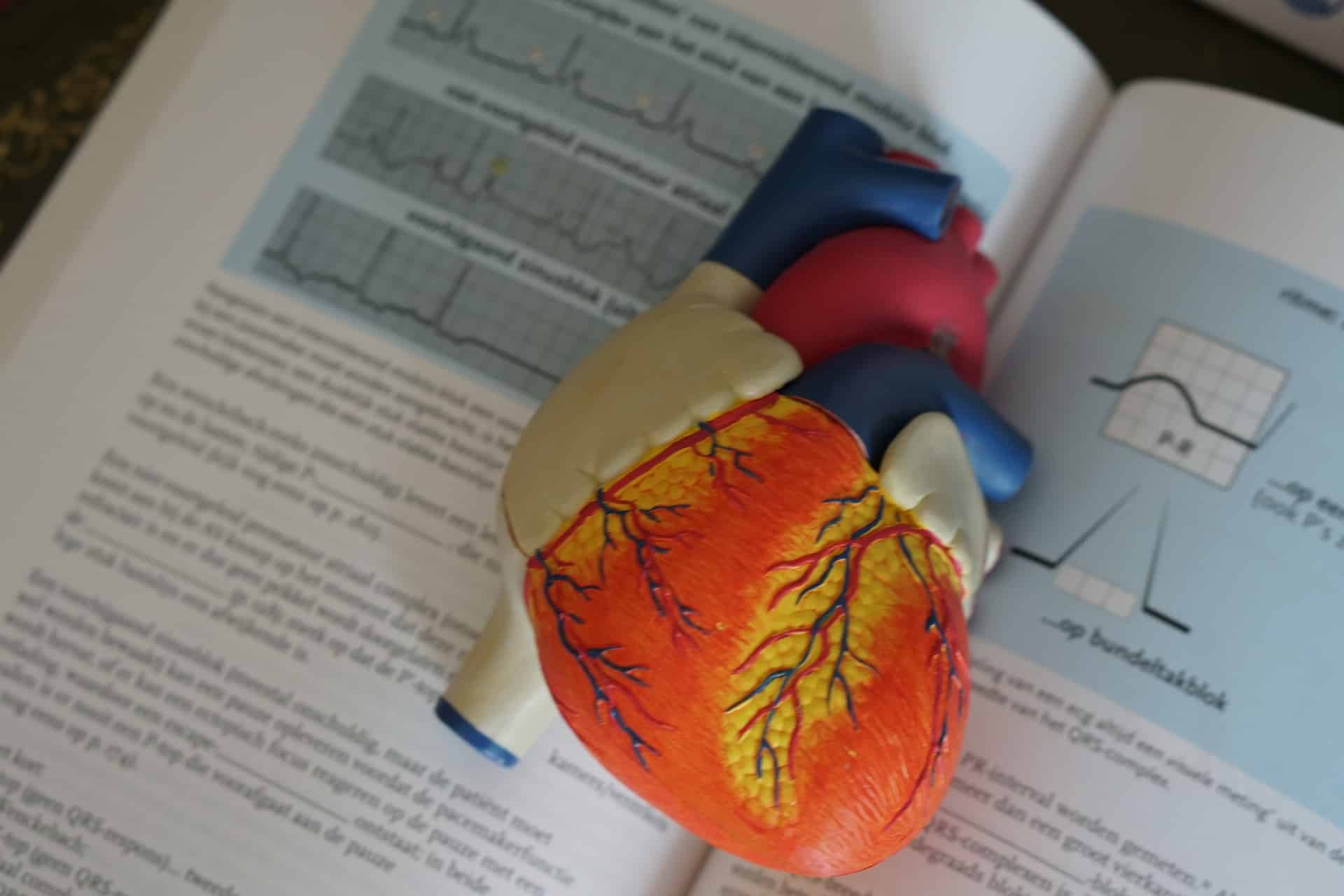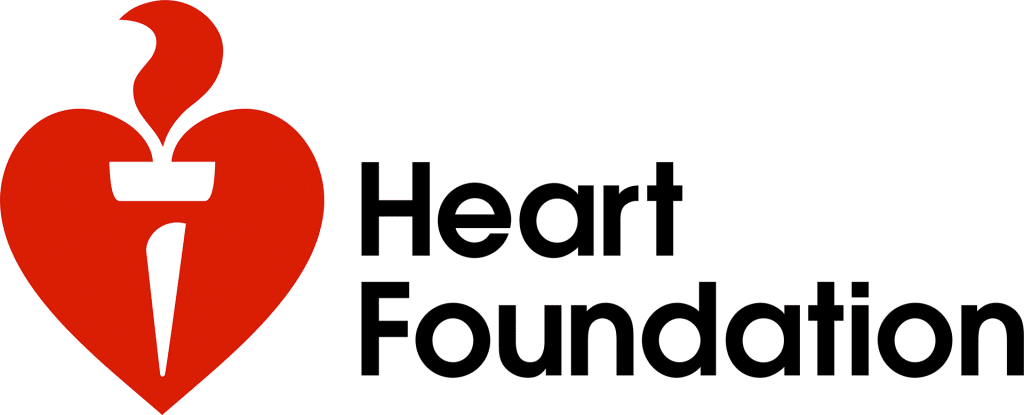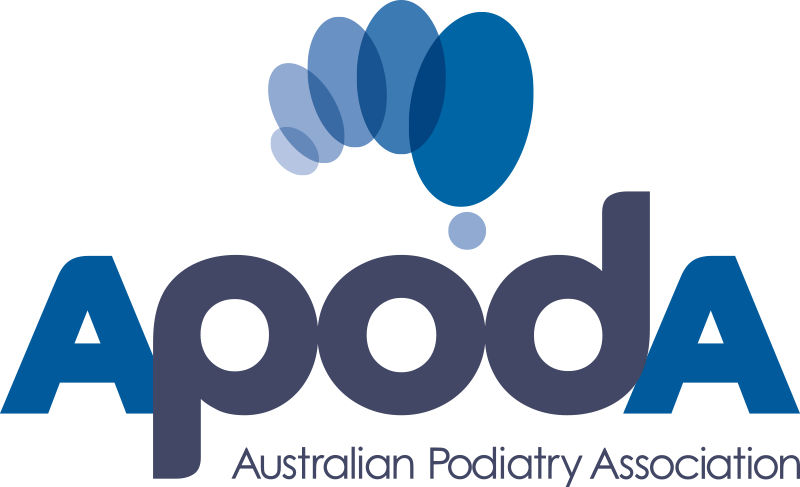
The Australian Podiatry Association has consulted with the Heart Foundation with the following goals in mind: – to provide advice for podiatrists to share with patients who have had a recent heart attack or heart surgery – or who have a family history of heart disease. Please bear these tips in mind during your next consultation.
This information is especially relevant in light of Heart Week, the national heart health awareness week taking place between 1 to 7 May, 2023.

A. Heart Week provides an opportunity for health professionals and the Australian public to start a conversation about heart disease – and to take steps to improve their heart health.
Every 30 minutes, one Australian loses their life to heart disease. It takes less than 30 minutes for your patient to know their risk. As part of this year’s Heart Week, the Heart Foundation is asking Australians to act now. There are three simple steps patients can take to keep their heart healthy:
A. Please encourage your patient to consult with their doctor regularly for regular health checks. If your patient is aged over 45, or over the age of 30 and of Aboriginal or Torres Strait Islander descent, they may be eligible for a Heart Health Check.
A Heart Health Check is a 20-minute check-up with a GP to assess a person’s risk of having a heart attack or stroke in the next five years. Your GP or nurse will ask you about your medical and family history of heart disease as well as your lifestyle, including your diet, physical activity, if you smoke or drink alcohol and whether you have a healthy weight. Your GP will also check your blood pressure, cholesterol and blood sugar levels.
Your GP will use this information to estimate your risk of a heart attack or stroke in the next five years. More importantly, your GP will discuss the steps you can take to lower your risk and whether medication or referral to another health professional is needed, such as seeing a dietitian for nutritional advice.
A. If your patient has had a heart attack, physical activity can help in many ways. This includes improving their ability to return to normal activities, reducing their chances of having another heart attack and helping them to feel healthier and have more energy. However, the challenge may lie in encouraging patients to adopt the same mindset.
Patients can often return to their usual activities within a few weeks of having a heart attack. This of course depends on their health and level of activity before their heart attack, and how much damage was caused by their heart attack. Their doctor will have discussed what activities they can do at home and this information should be used as a guide.
Encourage your patient to enrol in their local cardiac rehabilitation program so they can be monitored while returning to exercise, and also be provided with specific advice about recovering from a heart attack (more on this is below). This will help to support them to be able to walk independently with confidence.
In general, your patient should start slowly when it comes to walking, and not push themselves too hard. After a heart attack, their doctor will usually allow them to start with walking five to 10 minutes a day and build up slowly to 30 minutes over several weeks.
It can help if your patient begins with a goal, such as walking to the local shop or around the block. As they start to feel better and fitter, they might consider slowly increasing the intensity. Remind them to warm up and cool down for the first and last five minutes of their session.
Or you may wish to also advise your patient to begin with easy walking around their house or in their street. It is a good idea if they make sure only to walk on ground that is flat and to walk at a comfortable pace. The goal is to be able to talk without feeling short of breath. And if they don’t feel well enough to walk one day, they can let their body rest. Tell them it is okay to miss walking that day, but to consult with their doctor if they have any concerns.
A. If your patient has had a heart attack, operation or diagnosis, it’s a good idea to encourage them to attend their local cardiac rehabilitation program to get their health back on track.
Led by health professionals, this program provides specific advice – along with safe, personalised exercises to improve heart health and help with recovery. It also shares information and advice on medication, lifestyle management and psychosocial support to help manage their heart condition and support their return to daily living activities. Cardiac rehabilitation is the gold standard of practice in recovering from a heart event.
A. Your patient can either:
1. Seek a referral from their doctor (or act on the referral they may already have from their doctor).
2. Search online to find their nearest cardiac rehabilitation program or through the Heart Foundation’s Cardiac Services Directory and contact the cardiac rehabilitation directly.
3. Ask hospital staff for a referral to a nearby cardiac rehabilitation program.
4, Request information from telephone-based medical services such as the national healthdirect phone number 1800 022 222 (which is open 24 hours a day).
5. Head to the Heart Foundation’s website (and use the search bar to refine search terms).
A. If you want to do further research into cardiac rehabilitation, there is a stack of resources for health professionals, including videos and links to evidence-based research. The Heart Foundation also has a free online learning module, Six Steps to Cardiac Recovery.
A. In addition to building up their walking at home, let your patients know about the Heart Foundation Walking program. This free walking network makes physical activity fun, social and easy. They can find their nearest walking group via the link supplied above, or they can visit the Heart Foundation’s website for more information.
A. If walking in a group isn’t what they are after, encourage them to sign up for their own FREE six-week Personal Walking Plan. Walking plans include tailored programs that will help your patient slowly build up their walking with the guidance of motivational text messages and emails. It also includes their own strength and stretching plan to help them to achieve the Australian Physical Activity Guidelines by week six.
A. If approved by their doctor, your patient can start by doing light, everyday activities, such as cooking and walking about the house. Please also remind your patient to avoid doing heavier housework, such as sweeping, vacuuming, or mowing the lawn until their doctor says it is okay to do so. The goal should ideally be for your patient to sit less each day.
A. While this can be varied, typical patient questions might include:
If your patient has had a heart attack or a heart operation, and there are stairs where they live, advise your patient to follow their doctor’s advice about this. They should be able to climb stairs slowly when they get home from the hospital. Remind your patient that walking up the stairs takes more energy, so tell them to take their time and rest if they need to. They can gradually increase the number of stairs they climb and how quickly they climb them.
As their fitness and confidence increases, your patient should be able to begin activities like dancing, bike riding, swimming, golf and bowls again.
Emphasise that your patient should always ask their doctor, nurse, health worker or cardiac rehabilitation team about playing specific sports or other physical activities. Note that their doctor might recommend they stay away from some competitive sports.
This is an important point to clarify for your patients. Lifting weights and resistance training improves their muscle mass and strength but they should speak to their doctor or cardiac rehabilitation team before starting any muscle strengthening exercises at home, especially post-surgery. They will give advice about what exercises are suitable and safe for them to use.
A. In addition to carrying out clinical assessments (such as the ankle brachial index or toe brachial index tests) and providing related treatment – also encourage your patients to:
A. A big part of this year’s Heart Week theme is to promote Heart Health Checks. The Heart Health Check enables your patient to access a 20-minute check-up with their GP. It is currently the only available Medicare item that is dedicated to the early detection and prevention of heart disease in Australia.
The Medicare item for these checks is set to expire on 30 June, 2023. According to the Heart Foundation, “Removing the Medicare item will have a devastating impact, resulting in tens of thousands of preventable heart events occurring and a debilitating effect on the health system, all Australians, and their families”.
In response, the Heart Foundation is calling on health professionals like yourself – as well as the general public – to sign their petition to help prevent this outcome. They also suggest contacting local MPs (or other political contacts) and sharing the petition online with your networks.
© Copyright 2021 The Australian Podiatry Association
